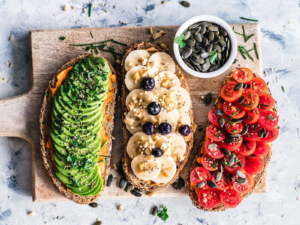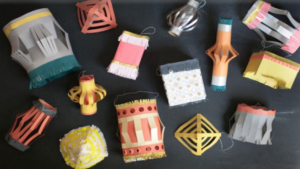Dehydration is a serious risk during fasting during Ramadan because eating and drinking are only permitted before sunrise and after sundown. Also, since those who are fasting are advised to rise very early to consume their Suhoor (or dawn meal), lack of sleep and dehydration might result in headaches. If you eat the correct meals in the right amounts, you can fast healthily.
A healthy iftar is essential since it replenishes energy storage and aids in maintaining your fast the following day. To receive the nutrients your body needs, you must make a special effort to eat the correct foods. Ramadan offers you the chance to develop healthy eating practices that you can keep up with after the month-long fast. To break you’re fast more hygienically and have a healthy rest of Ramadan, we’ve put up a few ideas for you.
Start with a small meal:
After a prolonged period of fasting, it is important to start with a small meal that is easy to digest. This can include fresh fruits, vegetables, or a light soup. Avoid heavy meals, fried or greasy foods, or high-sugar foods. After fasting for an extended period, the stomach shrinks, and the digestive system slows down. Eating a large meal right away can overload the digestive system and cause discomfort, bloating, or indigestion. Starting with a smaller meal allows the digestive system to ease back into its usual functions gradually. Eating a smaller meal for iftar can help regulate blood sugar levels and prevent overeating. When a person fasts, their blood sugar levels drop, and eating a large, high-carbohydrate meal right away can cause a rapid rise in blood sugar levels, leading to energy crashes and hunger pangs later on. A smaller meal with more balanced nutrients can help stabilize blood sugar levels and provide sustained energy throughout the evening.
Stay hydrated:
It is important to stay hydrated during the fasting period and continue to drink plenty of water after breaking the fast. You can also include herbal tea or coconut water to replenish electrolytes. When we break the fast during iftar, we usually consume food and beverages to replenish the body’s energy and nutrient stores. Drinking water or other hydrating fluids is particularly important because it helps to rehydrate the body and replenish lost fluids. Drinking enough water during iftar can also help prevent digestive issues, such as constipation, and reduce the risk of headaches, fatigue, and other symptoms associated with dehydration. It is recommended to drink at least 8-10 glasses of water or hydrating fluids throughout the evening to ensure proper hydration after breaking the fast.
Incorporate probiotics:
Probiotics can help support gut health and aid in digestion. You can include probiotic-rich foods such as kefir, yogurt, sauerkraut, kimchi, or kombucha. Probiotic bacteria help to balance the gut microbiome, which can improve digestion and reduce symptoms like bloating, constipation, and diarrhea that may occur after a day of fasting. It can also help to stimulate the immune system and can help to reduce the risk of infections and illnesses. The healthy bacteria found in probiotics can help the body better absorb nutrients from food, which can be especially important after a day of fasting when the body may require key nutrients. The gut microbiome has been linked to mood and emotional well-being, and probiotics have been shown to have a positive effect on mood and anxiety.
Avoid overeating:
After breaking the fast, it can be tempting to indulge in a large meal, but this can cause digestive discomfort. Instead, eat slowly, and listen to your body’s signals of fullness. Overeating should be avoided during iftar because it can have negative effects on your health and well-being. When you eat a large amount of food in a short amount of time, your digestive system can become overwhelmed, leading to discomfort, bloating, and indigestion. This can also lead to a drop in blood sugar levels, which can cause fatigue and dizziness. It can also lead to weight gain, especially if you consume high-calorie, high-fat, and high-sugar foods. This can be particularly problematic during Ramadan, as the fasting period is meant to be a time of spiritual reflection and discipline, and excess consumption of food can detract from this experience. In addition, overeating can also have long-term health consequences, such as increasing your risk of heart disease, diabetes, and other chronic conditions. Therefore, it’s important to practice moderation and self-control during iftar and to choose healthy, nutritious foods that will provide you with the energy and nourishment you need.
Gradually reintroduce solid foods:
If you have been on an extended fast, it is important to gradually reintroduce solid foods to avoid digestive issues. You can start with soft, easily digestible foods such as cooked vegetables, steamed fish, or soups, and then gradually reintroduce other solid foods over a few days.







